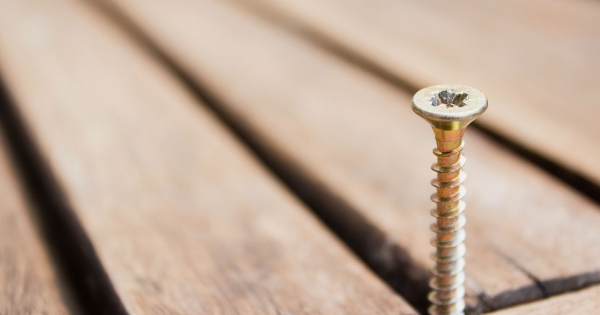Approximately 200 billion fasteners are used in America annually. They come in different shapes, sizes and are made from different materials, which makes them suitable for different applications. It is, therefore, critical to be mindful of the fastener options you choose for your valves and the equipment you use for chemical processes.
Check out our EZ Screw Builder to build your custom screw!
The right choice of custom screws can be the difference between optimum production and perennial losses. It can also have an impact on the safety of equipment and staff in the plant. Here is part of what you need to know about custom screws, especially in regard to corrosion and temperature tolerance.
Corrosion and the Stainless Steel Screw
The strength of your custom set screws is important but not as significant as other features such as resistance to corrosion. Depending on your application, you can prevent corrosion by using stainless steel fasteners.
If there is the presence of chlorides and the equipment is subject to stress, it can cause corrosion cracking. Cracks are the most problematic aspects of the corrosive effect caused by chlorides. Otherwise, some technicians choose to ignore corrosion as long as its effect is only visual.
However, some industrial environments may be more prone to stress corrosion cracking (SCC). Plants located near the sea are more susceptible to chloride SCC. Almost all grades of steel can experience this form of degradation.
Other forms of stress corrosion cracking may include hydrogen sulfide HSSC, as well as caustic and liquid metal embrittlement. Because SCC is usually not easy to detect visually, it is one of the most common culprits for valve failure in industrial plants.
Protective Coating
One way industries can ensure their custom set screws have the right level of corrosion protection, is through plating. A protective layer of Zinc or cadmium is added to the stainless steel custom fastener to reduce the risk of SCC.
The other problem is that in industrial plants, the stainless steel will also be subjected to high temperatures. Unfortunately, Cadmium and Zinc have melting points low enough to be affected by intensive manufacturing processes.
When the Zinc or cadmium melts, it can harm the equipment. Small quantities of the melting cadmium can cause brittleness failure on the fastener. In short, the temperature limit for cadmium is 3700 Fahrenheit, and for Zinc, it is 4890 Fahrenheit.
Zinc-Nickel Electroplating
If you require custom set screws and fasteners for high-temperature applications, Nickel-plating is another option. Nickel can handle high temperatures while providing exceptional wear and corrosion resistance.
Another advantage of Nickel is that it can be combined with other elements such as boron, manganese, and tin to form a custom alloy. Different alloys can be chosen, depending on whether you are aiming for conductivity, strength, or corrosion resistance.
A zinc-nickel alloy is a form of electroplating popular with manufacturers of modern equipment. It can withstand high temperatures and corrosion and is also cost-effective. The alloy is compatible with many industrial and manufacturing systems. It has found many applications in electronics, aerospace, automotive, and energy production.
If you are looking for a machine screw for industrial purposes, take time to consider its suitability to your application. There are certain factors, such as chemicals, tension, and high temperature, which can cause serious machine failure. You can consult a manufacturer with the expertise and experience to help you choose the right custom set screws.

